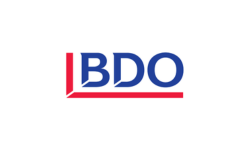Unlocking Sustainability Value

Andrew Hobbs is EY EMEIA Public Policy Leader. This article is a summary of his longer article which can be found here: How can effective governance unlock value from sustainability? | EY - Global
Andrew Hobbs outlines the key drivers that boards can use to successfully integrate sustainability into their business.
Corporate action on decarbonisation is essential if Europe is to meet ambitious sustainability targets, and the business value proposition for change is clear.
Yet there is widespread agreement that not enough is being done, and a tension between short-term profits and long-term value.
A new EY survey of 200 European corporate senior leaders found that those who were ‘Experts’ in sustainability governance had found ways to successfully unlock value and that better governance can lead to better results.
Back in 2015, the Paris Agreement, the legally binding international treaty on climate change, was adopted at COP21 and set targets to limit global warming to 1.5 degrees C. It was followed by the European Union’s Green Deal, providing a legislative framework and roadmap for a climate neutral Europe. Its mix of new and revised laws demand and support reduced emissions, sustainable food production systems, the repair, reuse and recycle of products and the reduction of reliance on raw materials.
Impact on business is significant. While there are new rules and targets to be met that are essential to maintaining the health of the planet, the transition to a low carbon, more sustainable economy is a major business opportunity, as companies supply the finance, goods and services to enable the global Net-Zero transition.
With a spotlight on sustainability, governance, as a vital part of the ESG framework, has an important role to play. In 2021 we launched the annual EY Long-Term Value and Corporate Governance Survey to explore how companies across Europe were strengthening their governance in response; challenging, supporting, driving and incentivising change.
The EY analysis of the 2023 results found that a small group of high-performing sustainability governance ‘Experts’ are driving both financial value and progress towards targets, compared with a long tail of ‘Beginners’ who still have much more to do:
- Seventy-six per cent of ‘Experts’ are optimistic about their company’s revenue growth prospects over the next 12 months, compared with less than half (45%) of ‘Beginners’.
- Over half of ‘Experts’ (52%) are ‘very satisfied’ with the progress they have made to date in achieving the climate targets that are part of their approach to environmental sustainability. That number drops to 13% for ‘Beginners’.
In summary the 2023 survey found:
- Better governance supports better outcomes.
- Further sustainability governance requirements are needed.
- Systematic, accountable and authentic governance can unlock value from sustainability.
EY Long-Term Value and Corporate Governance Survey
The annual EY Long-Term Value and Corporate Governance Survey questions leaders from companies representing 26 industry segments across 15 countries. Twenty per cent are Chairs or non-execs of the board, 20% are CEOs, and the remainder are drawn from across the C-suite. Fifty per cent of respondents come from companies with revenue of more than €1bn, with the other half between €100m and €999m.
This year’s survey draws on the views of these 200 senior leaders to examine how corporate governance is evolving to embed sustainability into their companies’ strategies and approach to long-term value.
We created a sustainability governance score based on respondents’ assessment of how effective their governance was in six key areas ranging from harder issues (such as ‘incentivising ESG performance through executive compensation mechanisms’) to softer issues (such as ‘encouraging open and honest debate to ensure all board members are aligned on the company’s ESG priorities and approach’). Using these scores, we split respondents into those with more effective ‘Experts’ or less effective ‘Beginners’ sustainability governance and evaluated the approaches, benefits and challenges each group reported.
In the context of this article, we focus particularly on the climate change aspects of sustainability. While the majority of companies (72%) have made explicit commitments to support the UN’s Sustainable Development Goals most relevant to their business, climate change has been on the agenda for the longest, and there are greater expectations around companies having a mature approach.
1. Better governance supports better outcomes
Effective governance is instrumental in driving value-led sustainability, but short- versus long-term tensions persist.
Businesses have a critical role to play in driving the urgent change needed to meet sustainability targets and there are financial benefits:
‘Companies that execute on their sustainability strategy (whether in operating model, products, support functions, or talent) do not just create more value for our planet and society,’ says Julie Linn Teigland, EY EMEIA Area Managing Partner and EY Global Leader – Women. Fast Forward. ‘They are also more likely to capture more financial value for the company and their shareholders’ – an approach that the global EY organisation calls ‘value-led sustainability’.
It’s clear from the latest survey that when a company is ‘Expert’ in integrating sustainability into its governance, it is not only more optimistic about revenue growth, but also more satisfied with progress against climate targets.
Success, however, does depend on the ability to manage the continued tension between short-term priorities and long-term value. The need to drive the sustainability agenda has added a new layer of complexity when it comes to balancing short- and long-term business pressures.
This is particularly apparent when it comes to the critical dynamic between companies and shareholders. The survey found that 74% say their ‘company should address ESG issues relevant to their business, even if doing so reduces short-term financial performance and profitability’.
This aligns with the views of investors – 78% of those surveyed in the EY Global Corporate Reporting and Institutional Investor Survey believe the companies they invest in should address sustainability issues relevant to their business, even if it reduces profits in the short term.
Both camps, therefore, need to be aligned on the need to make the difficult decisions and trade-offs needed to protect and grow long-term value. At the same time, however, 64% of the respondents to this survey say, ‘We face short-term earnings pressure from investors, which impedes our longerterm investments in sustainability’.
The quality of engagement between boards, management and investors is a critical factor in addressing this tension, particularly in terms of reporting.
2. Further sustainability governance requirements are needed
Leading companies drive better outcomes, but recognise that the sustainability governance journey has further to go.
There is increasing disquiet among stakeholders that companies are not injecting enough urgency into addressing climate priorities. This growing impatience reflects a growing concern that a company’s statements about its intentions do not translate into action.
‘Experts’ are making greater progress than ‘Beginners’, but they also acknowledge that they still need to sharpen up the role of their board in meeting climate change targets.
3. Moving forward with sustainability governance
Focusing on board dynamics, remuneration and reporting can deliver a systematic, accountable and authentic approach.
This third theme is where some practical recommendations for readers to translate into their own situations can be found. Although many companies have put in place a wide range of structures to integrate sustainability into the board’s decision making, many respondents questioned whether sustainability is a systematic, intrinsic way of how it operates.
Only 7% of respondents felt that sustainability is integrated into board structures and decision-making.
EY recommendations based on the current survey
Sustainability needs both dedicated time, and dedicated experts.
The ‘Experts’ are those that go beyond putting good structures in place; they also devote enough time to sustainability and ensure that boards are diverse enough to bring new perspectives to the debate.
- Eighty-three per cent of ‘Experts’ are effective at ‘managing the board agenda to ensure long-term ESG risks and opportunities are always discussed, not just near-term business issues,’ but this drops to 52% for ‘Beginners’.
- Eighty-six per cent of ‘Experts’ are effective when it comes to ‘increasing boardroom diversity and ensuring new voices are given equitable speaking time to provide fresh perspectives on ESG topics,’ but this drops to 36% for ‘Beginners’.
Quality time spent by willing boards who have experience and skills in ESG topics is more important to progressing against sustainability objectives than formal structures such as sustainability committees. That means making sure that meetings are regularly scheduled, and that the people sitting around the table are those with expertise in the subject matter.
Remuneration policies must link to sustainability targets.
It’s also critical for boards to find ways to make their companies accountable for delivering on sustainability objectives, with KPIs that link to remuneration.
It is challenging to define ‘remuneration-grade’ KPIs for sustainability objectives – which constitute a meaningful proportion of total reward and help to hold management teams accountable. But there is a compelling case for doing so, and our survey found that ‘Experts’ are already doing this:
- ‘Experts’: 61% include ESG metrics as a significant element when setting the compensation of senior executives (with 34% as a limited element).
- Beginners’: 29% make it a significant element (with 59% as a limited element).
Making a real impact requires a shift in mindset. C-suites, boards and remuneration committees need to be pragmatic and agile when establishing ESG-based KPIs that continue to evolve. They can also benefit from being more open and transparent with their stakeholders – ensuring they engage with them fully on this critical topic and share details of their sustainability journey.
An authentic and accountable approach to reporting.
Finally, it is critical for boards to take an authentic approach to reporting, with measuring systems that are easy to follow and KPIs that everyone understands. If delivering on climate targets is integral to the success of day-to-day operations, then ongoing education and simple, clear KPIs are essential. Creating good information and reporting systems, with dashboards, can enable boards to track progress and be accountable to stakeholders. This clarity of purpose could explain why the sustainability-governance ‘Experts’ are better prepared for the changing regulatory environment that will come into force with the EU’s Corporate Sustainability Reporting Directive (CSRD).
The constantly moving sustainability agenda is a challenge for European CEOs and board members. The risk is that a fluid and complex agenda causes some companies to become too reactive rather than strategic, or even to become paralysed with uncertainty about where to focus their efforts.
With the right governance, however, companies can zero in on the sustainability topics that matter most to the creation of long-term value: securing a successful future for their organisations while also safeguarding the future of the planet and its people.
The full Survey can be accessed here.
The views reflected in this article are the views of the author and do not necessarily reflect the views of the global EY organisation or its member firms.









